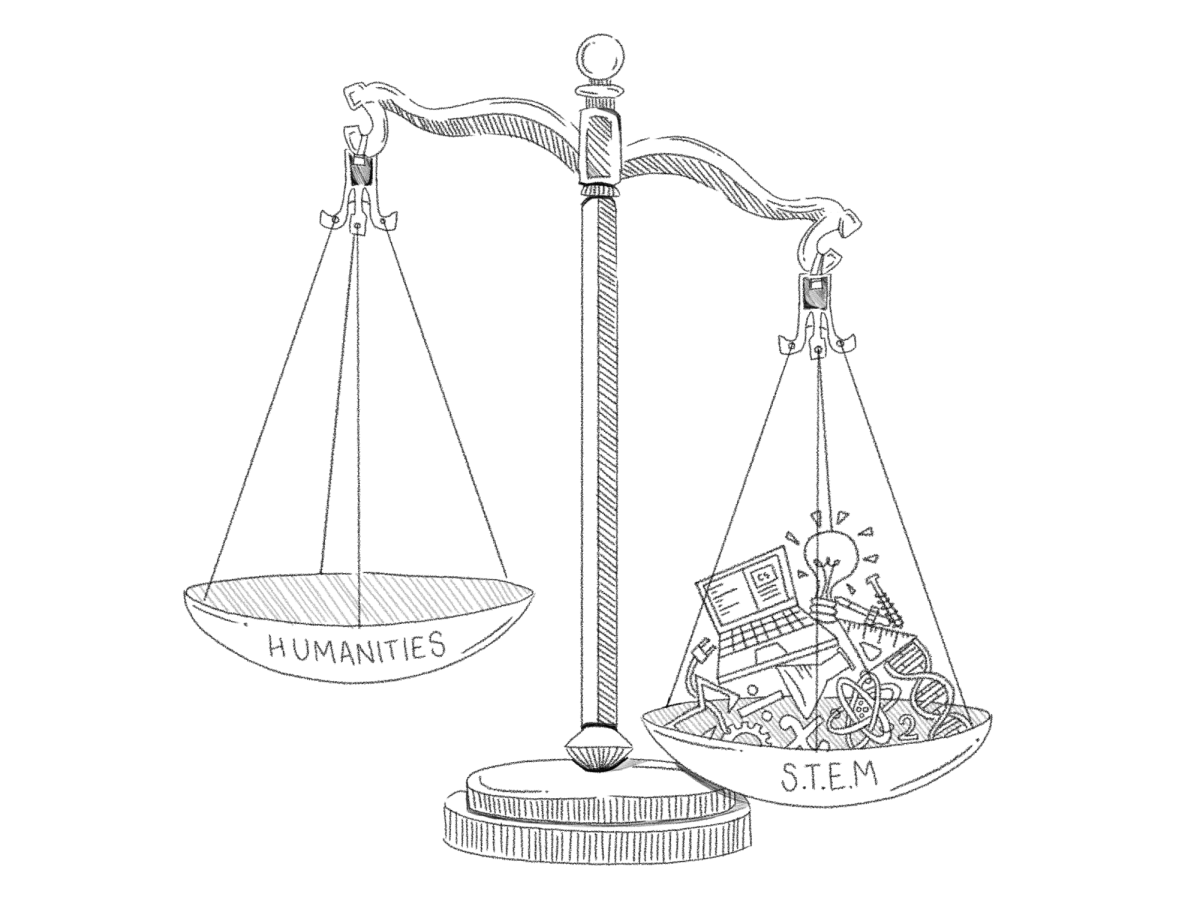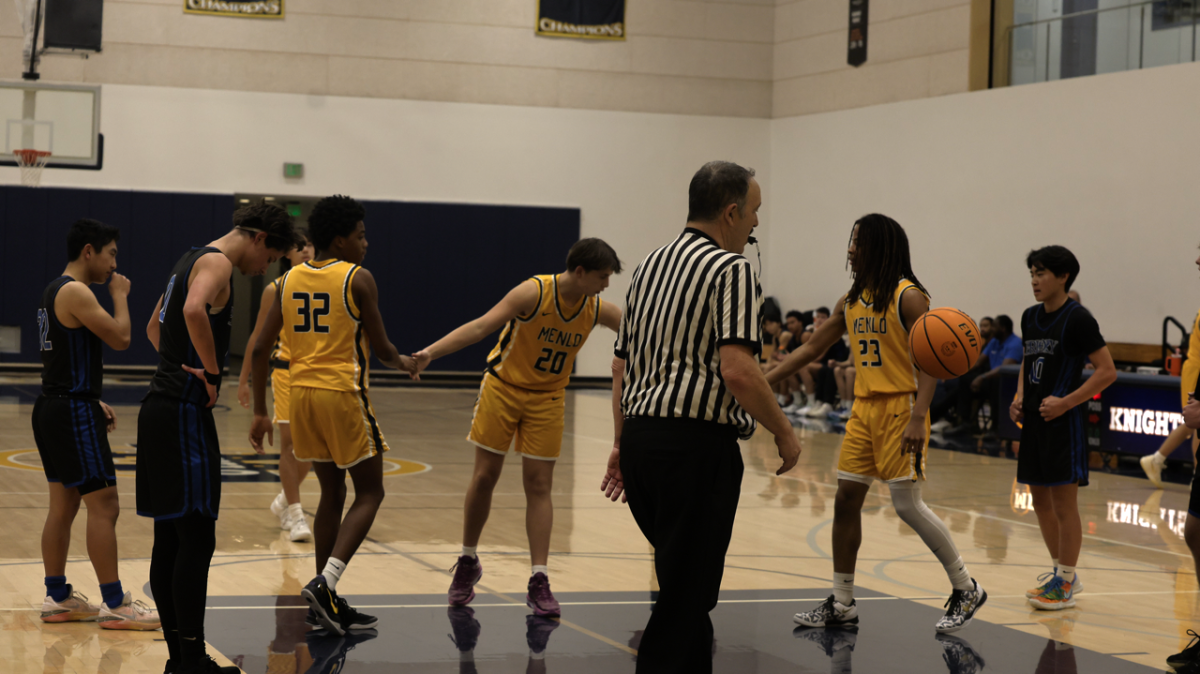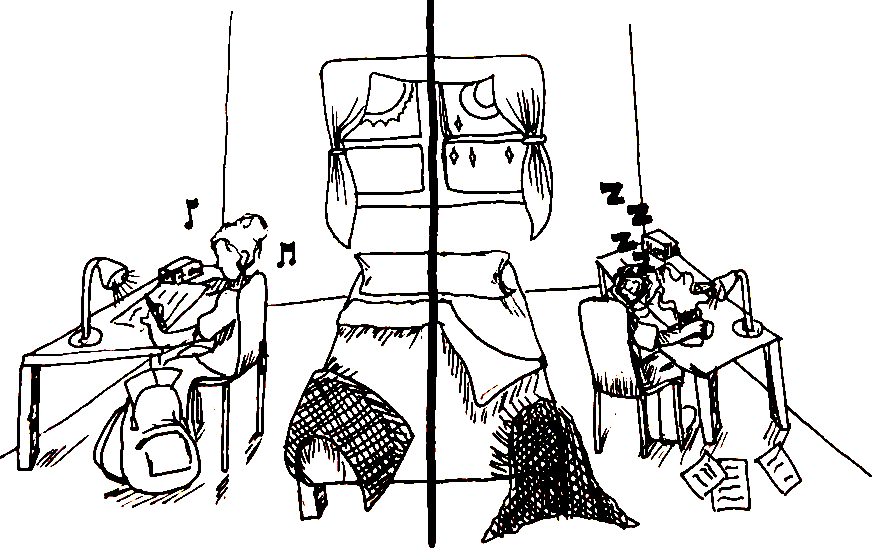At Menlo, Advanced Placement courses have been long esteemed. Many consider taking an AP class as a display of academic rigor and readiness for college. However, Menlo is currently in the process of phasing out all APs due to their inflexible curricula, opting to replace many humanities classes with honors or regular-level courses and most STEM courses with Advanced Topics classes. The reality of this decision is that the phase-out of AP courses has disproportionately impacted humanities-oriented students, leaving them disadvantaged compared to their STEM counterparts.
AP English Language, AP English Literature and AP United States History are amongst the humanities APs that have begun to be phased out or have already been eliminated to be replaced with honors classes. Conversely, numerous STEM APs are being substituted with AT classes. Despite lacking the AP label, most AT courses still adequately prepare students for the AP exam, which reads well on transcripts in contrast to the less AP-focused honors classes. Menlo offers many high-level AT STEM courses, such as AT Computer Science, AT Chemistry and AT Biology.
The disparity in course options as Menlo phases them out can put humanities students at a disadvantage in the competitive admissions process. Regardless of the benefits of phasing out AP programs, it’s undeniable that students who take advantage of high-level courses stand out in college applications as having the ability to challenge themselves.
To ensure equal academic opportunities for students who excel in fields such as literature, history and the arts, Menlo should offer an equal number of high-level courses for every kind of student.
Not to mention, as Menlo phased out the APs in the past couple of years, there was a particularly large imbalance between the still-existing AP courses and the ones that became honors. During course selection for my sophomore year, my STEM-oriented peers had multiple options such as AP Computer Science and AP Physics 2 — although AP Computer Science has since been removed — while there were limited Advanced Placement arts classes.
As a student who excels in humanities subjects, I have personally felt the repercussions of this imbalance in AP offerings. Although this imbalance will no longer exist beginning in the 2024-25 school year, the lack of humanities-focused AP courses available to me when picking my current classes left me feeling behind in comparison to my peers, who seem to be taking more rigorous courses than myself.
According to Upper School Director John Schafer, it has been difficult to match the number of AP classes between disciplines at Menlo in the first place because the College Board offers more STEM than humanities courses. Thus, with the removal of most AP courses, Menlo has the opportunity to create more advanced humanities courses.
Still, the decision to phase out AP courses and create replacement classes in a manner that neglects humanities offerings is not the most effective way to transition the curriculum at Menlo. Recognizing the importance of equitable opportunities for all students to pursue advanced coursework can cultivate a more inclusive and supportive learning environment. While phasing out APs is not necessarily a negative thing, prioritizing balance and diversity in offered advanced classes ensures that students of all academic inclinations have the chance to thrive and succeed.










